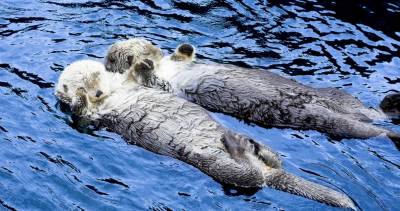Guy Dauncey: Vancouver 2032—A better world is possible
It’s got to be possible. We are facing a perfect storm of global challenges, and the only response that satisfies both my heart and my mind is a powerful determination to build the kind of future that can address the crises by tackling them head-on, right here in Vancouver.
Four years ago I decided to explore such a future by writing an ecotopian novel set in the year 2032, by which time Vancouver has become one of the greenest cities in the world and is building a new cooperative economy, replacing fossil fuels, poverty, homelessness, and the housing crisis with affordable living, renewable energy, and all things green.
Four Days in the Future
In the novel, 24-year-old Patrick Wu spends four days in this future, meeting a host of people and asking a host of questions. What he discovers—as I did while writing the book—is a city so aflame with beauty, art, new ideas, and new initiatives that both he and I fell in love with this possible future.
In every neighbourhood, Village Assemblies encourage local self-governance, and streets are being narrowed and filled with mini-parklets, vegetables, and fruit trees. Neighbours are organizing everything from youth business clubs to community tool libraries and potluck dinners. They are designing their own bus shelters, sharing bikes and electric vehicles, and on the streets, bikes, and cargo-bikes are everywhere, using safe separated lanes, alongside electric cars, trucks, and buses. The solar revolution is in full swing, with $6,000 buying a rooftop system that earns its owner $900 a year and is good for up to 50 years.
Mammoths on Hastings Street
Along Hastings from Seymour to Main, the street has been stripped of traffic and turned into a celebratory pilgrimage of healing, with huge sculptures at each intersection that tell the history of Vancouver’s First Nations, starting at Seymour with a life-sized mammoth and baby mammoth and ending with a circular arena carved into the road at Hastings and Main, with seating for conversation and performance.
The rat- and bug-infested rooming hotels, now under community ownership, have been given a complete makeover. There is food growing everywhere, and everyone receives a monthly Citizens’ Income, financed by tax reform. The world’s tax havens, plutocratic playgrounds for the rich and selfish, have been closed down.
How have all this and a host of other changes happened? Patrick learns that when the next financial crisis burst, Vancouverites and others around the world rolled up their sleeves and organized, not to occupy and complain, as they did following the last financial crash, but to put together an incisive program of change and reform known as the OMEGA Days. O stood for Open Democracy, M for Meaningful Work, E for a New Economy, G for a Green Future and A for Affordable Living. For each theme they developed five practical solutions. Then they went to town, building such a constructive celebratory protest movement that after much campaigning, many arrests and one dramatic assassination, success was theirs.
Four storms rolled into one
The perfect storm that is heading our way is four storms rolled into one—the climate crisis, the looming financial crisis, the global ecological crisis, and the sad unheralded crisis of loneliness, caused by Netflix and the collapse of family and neighbourhood life.
The response to the climate crisis that Patrick discovers in 2032 involves a successful shift to 100 percent renewable energy for all transport, buildings, and electricity, the rise of sustainable forests and organic farms, and the widespread adoption of a healthy vegetarian diet. The climate crisis is still building, and climate disasters are multiplying, so the pressure is on for a larger and more extensive global OMEGA Days to accelerate change around the planet.
The response to the ecological crisis involves green business certification, the restoration of urban creeks, the return of herring to False Creek with humpback whales in pursuit, a full conversion to organic farming, dark-skies nights when the street lights are all turned off, a transition away from plastics, and much more.
A new economy
The response to the global financial crisis is equally profound, with the creation of community enterprises, public banking, cooperative business networks, community currencies, the cultivation of a new entrepreneurial culture, businesses changing their legal DNA to become Benefit Corporations, new Fair Trade Treaties, and more.
The new economy that Patrick discovers is still free market and competitive, but it is no longer capitalist, since maximizing the growth of capital at the expense of everything else is no longer its guiding principle. It's being replaced by the impulse to cooperative self-organization for wider social, environmental and global benefit.
And as to the loneliness crisis, it is long gone, swept away by the blossoming of cooperation and community activity among friends and neighbours.
Out in the Fraser Valley organic farms are flourishing, and across Canada democracy is being revitalized with proportional electronic voting, votes at 16, and the rejuvenation of the previously sludgy political parties by the same spirit of cooperative self-organization that has taken Vancouver by storm.
These are just some of the community and economic initiatives that are shaping Vancouver in 2032. Alongside them is a flourishing of artistic expression, from holoconcerts and holographic sculptures to electronic poetry in the sidewalks and bus shelters.
In concluding his account of his journey, Patrick writes that he is so in love with the future that ‘We just need to be alive, to feel compassion in our hearts and inspiration in our minds, and to roll up our sleeves and get to work."















Comments